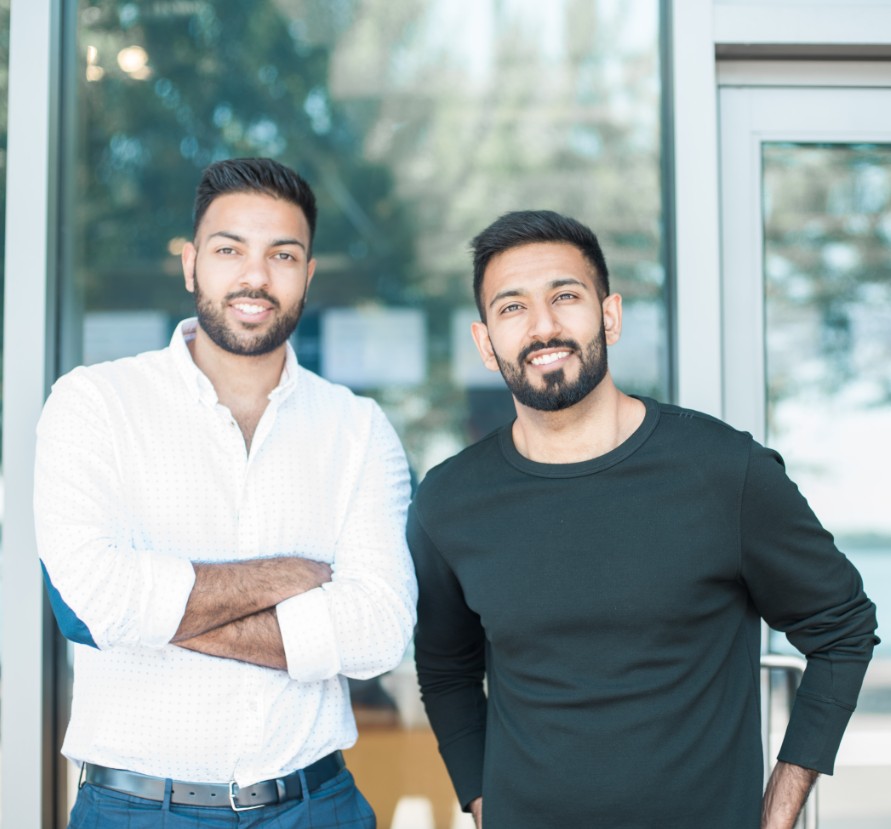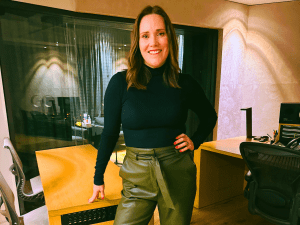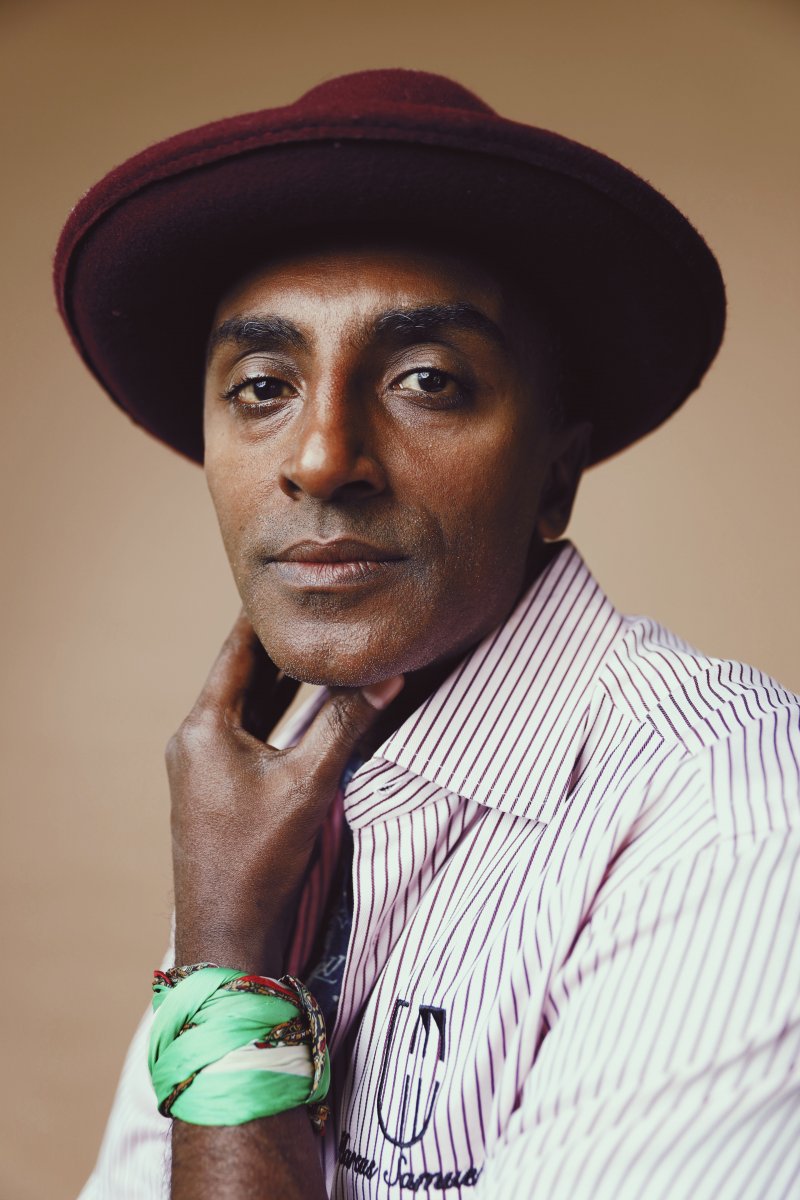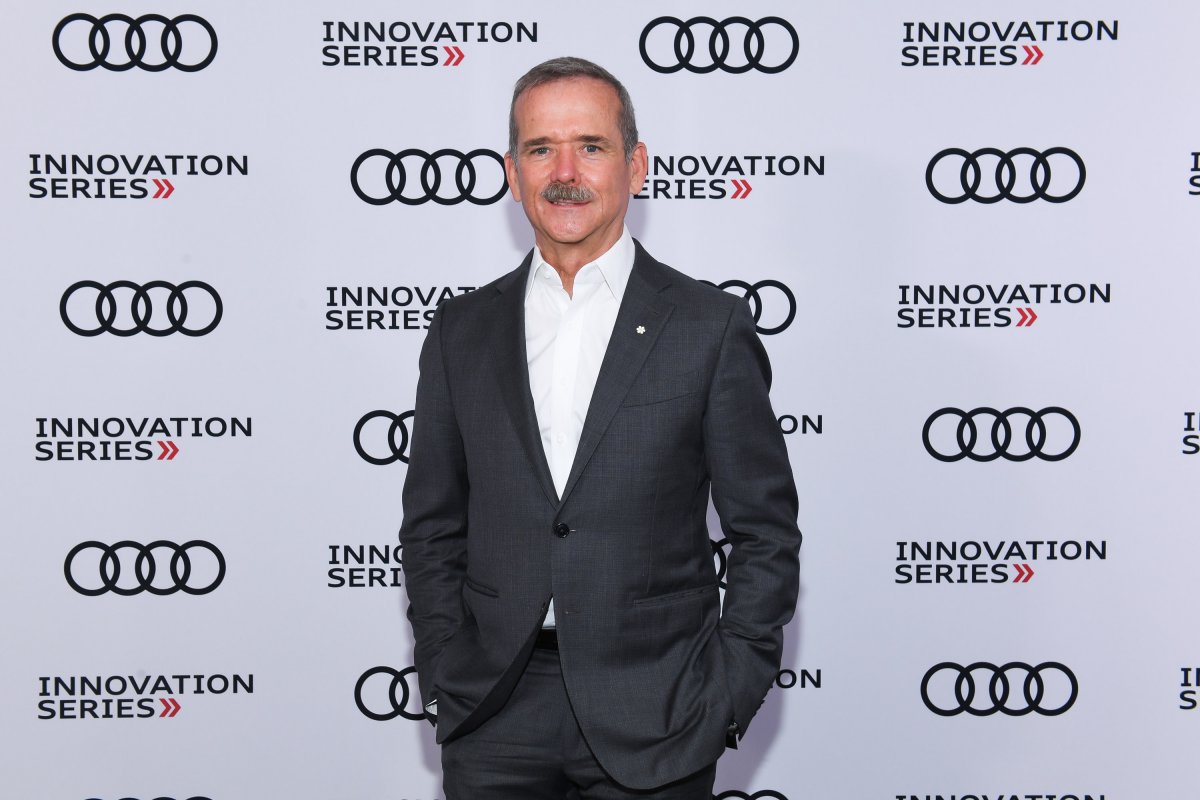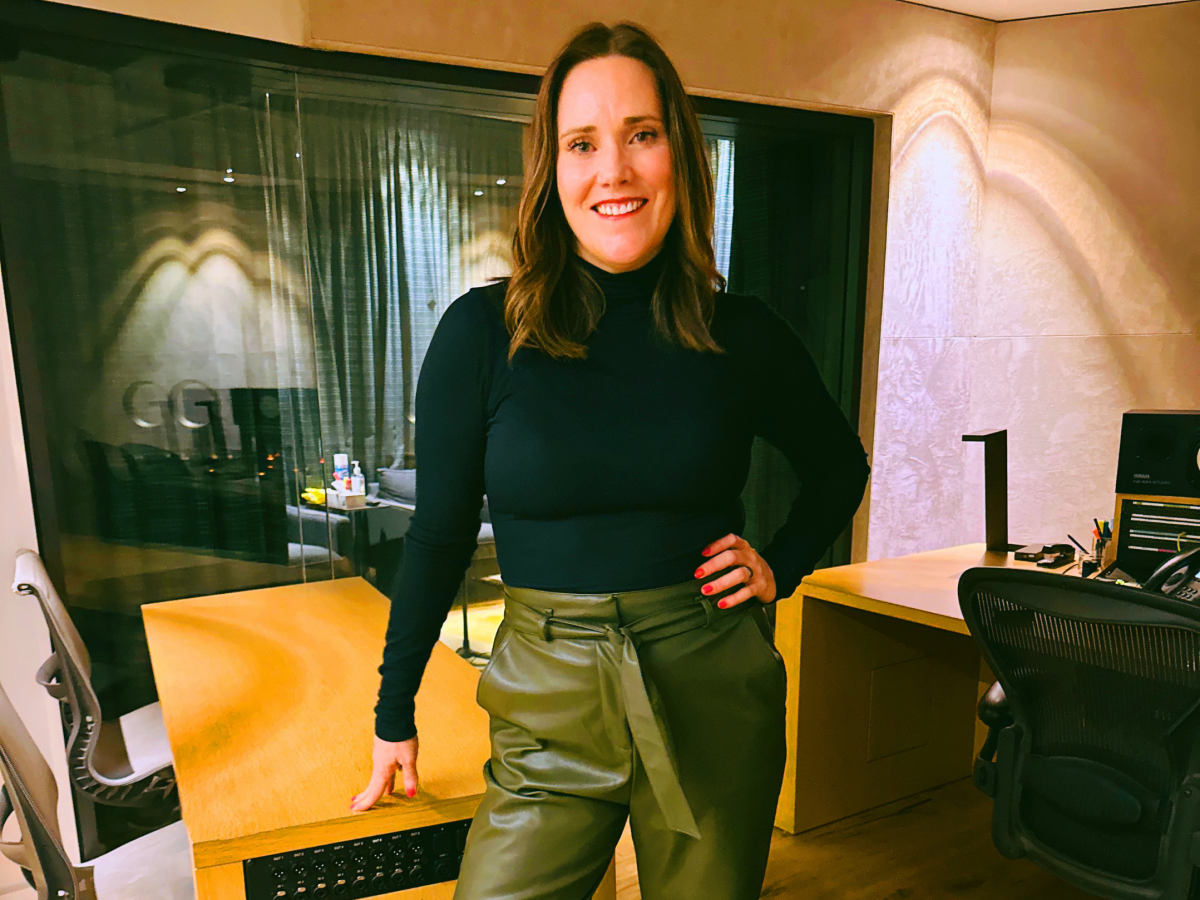Having an entrepreneur in the family is usually a rarity – only 9% of Canadians run their own businesses, after all. Knowing this, the odds of siblings choosing to pursue entrepreneurship as their career path seems even more unlikely. In that case, what actually drives siblings to become entrepreneurs? With the opportunity to speak to five sibling duos in the Toronto startup ecosystem, we get to explore how siblings support one another, how they work together or lead their own ventures, and how parenting has impacted their pursuits.
Toronto’s sibling entrepreneurs


Jodi Kovitz and Michael Katchen are siblings who are leading organizations in the tech industry with a love of the outdoors. Jodi is the founder and CEO of #movethedial, a global movement to increase the participation and advancement of women in technology through strategic partnerships with change makers. Michael is the co-founder and CEO of Wealthsimple, a financial services company that helps anyone grow and manage their money.
[vc_row][vc_column][vc_separator][vc_column_text]


Brothers Nadeem and Navid Nathoo co-founded The Knowledge Society (TKS). TKS is an institution that trains young people on the knowledge, skills, mindsets, and networks to solve important problems in the world, focusing on emerging technologies as the tools to do this. Their similar introspective personalities gave them the ability to think bigger than solving just one problem.
[vc_row][vc_column][vc_separator][vc_column_text]
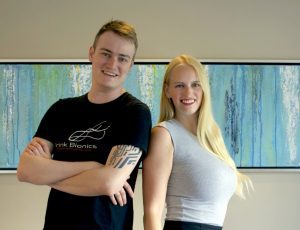

Samantha and Erik Lloyd pursued technology like their dad but their paths currently diverge within the field of artificial intelligence (AI). Samantha Lloyd is the co-founder and CEO of Metaranx, the no code AI builder. Erik Lloyd is the co-founder and CEO of Brink Bionics, whose IMPULSE gaming hardware uses machine learning and neuro-technology to map game commands, such as clicks, to a person’s nervous system for improved reaction time. Their similar sense of humour keeps them going when running a startup gets tough.
[vc_row][vc_column][vc_separator][vc_column_text]


Sisters Fatima and Sheba Zaidi lead vastly different service businesses, a reflection of their natural leadership and extrovert personalities. Fatima is the co-founder and CEO of Quill, the world’s first one-stop marketplace where podcasters can find vetted expert freelancers. Sheba is the co-founder of The County Wine Tour, a wine tour company based out of Prince Edward County and most recently launched Mahara, a lifestyle company with a mission to inspire humanity to live more mindfully.
[vc_row][vc_column][vc_separator][vc_column_text]


Mark and David Ang are brothers in business together, co-founding Second Closet as CEO and COO, respectively. Second Closet is Canada’s largest full-service valet storage company. Its mission is to offer consumers and businesses a simple and ultra-convenient storage solution. Their mutual tenacity and discipline in business started their entrepreneurial journey together at a young age.
When Siblings Make the Ultimate Co-Founders
Whereas the other sibling groups run separate ventures, the Nathoo and Ang brothers operate companies as co-founders. All business owners know how important it is to have a co-founder you rely on and siblings can be the perfect fit for that role.
“You get to have a business partner you’ve had the opportunity to get to know over decades.” – Mark Ang
To be successful working with family, it seems you need to align on goals for yourselves and your businesses but how you operate or work day-to-day can be entirely different.
Navid says, “I too often see entrepreneurs who have exits and get caught up in the next big opportunity. Nadeem asked me how we would spend our time if we had $10 billion in the bank. The answer was to solve important problems in the world by building that infrastructure through education.”


Nadeem says what is most important is having a reliable co-founder in order to ensure stability within a startup, “Any entrepreneur will tell you running a business is far more manageable with a partner-in-crime. Just the fact that we could work together on anything – I would’ve left whatever I was doing to go through that experience with him.”
Co-founders don’t always need to agree with one another to run a successful venture, and siblings often have a relationship that enables healthy debate. David Ang says this has been an essential part of managing Second Closet’s day-to-day operations,
“We both have the same outcome in mind but we’ll debate and have disagreements on how we get there. The fact that we don’t necessarily agree on everything makes for good discourse and typically a better outcome.” Mark concurs, “We’re able to execute with more trust and anticipate the other’s actions or thoughts more easily. You get to have a business partner you’ve had the opportunity to get to know over decades.”
The sibling support system is a uniquely honest one
Whether they’re working towards aligned goals within the same company or running their own ventures, siblings support one another with honesty. As per the Zaidi sisters, “Growing up as sisters in a close-knit family, we were taught to look out for each other. As the older sister, Sheba assumed the more mature, protective and indulgent role and Fatima was the dreamer with a wild imagination.”
“We’re peers in the same industry, but we’re also family, so there’s a different level of support and unbiased advice.” – Michael Katchen
Siblings tend to be more honest with one another, and there is an underlying trust and loyalty within the relationship that may make it easier to navigate than typical co-founder or mentorship relationships.


Samantha Lloyd, co-founder and CEO of Metaranx says, “Our true friendship with each other is something I really appreciate. We were always really blunt and honest with each other. I trust and respect Erik’s opinion and I rely on him a lot.”
The support they provide one another is tantamount to their success and many siblings credit one another as the reason they achieved what they have.
Michael Katchen, co-founder and CEO of Wealthsimple, says, “Jodi has paved the way for me in more ways than one. As my older sister, she demonstrated firsthand that I could do something big. We’re peers in the same industry, but we’re also family, so there’s a different level of support and unbiased advice with Jodi that is really refreshing and honest.”
The personality traits of entrepreneurial siblings
There are countless claims that you need certain personality traits to be a successful entrepreneur, but siblings are a highlight of how different personality types can be both solid leaders and risk-takers.


The differences continue in social situations, where many sibling sets seem to split between the extrovert and introvert personality. Older siblings tend to skew more introverted than their younger counterparts despite our opposing anecdotal evidence. Erik Lloyd states, “During my late high school and early university years, Samantha always encouraged me to push out of my socially-awkward shell to meet. This laid the foundation for important cognitive tools to help me move past stressful situations, from something as casual as a party, to pitching my company.”
Michael feels similarly, “Jodi is the most extraverted person I know. Whenever she travels, she comes home with a story about the amazing person she met on the plane or in the Uber and how they’ve made plans to get together or do business together. I don’t think I’ve ever talked to the person next to me on a plane before.”
While the ability to communicate and connect is key for any business owner, extraversion isn’t the only thing that defines a leader or entrepreneur. You need to be able to strive for an uncertain future and take risks.
Fatima Zaidi, CEO of Quill, says, “Sheba is the ultimate optimist while also being one of the wisest people you’ll meet. So when things don’t go your way in business (which is often the case!), Sheba is a great sounding board that gives you instant perspective and has you walking away knowing good things are just around the corner.”
Impact of parenting on raising entrepreneurial children
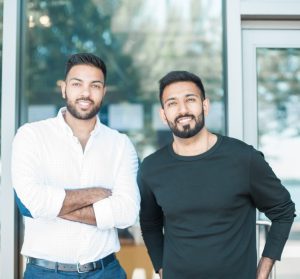

Of the 63% of entrepreneurs who knew other entrepreneurs growing up, only 36% knew a relative who also ran their own business. Nadeem and Navid were of that percent surrounded by entrepreneurship growing up, “My dad was an entrepreneur out of necessity. There was a lot of serendipity and luck involved, he would say. But he was incredibly hard working and eventually got into real estate, buying property little by little. Since then he’s always worked for himself. My mom started a non-profit organization dedicated to integrating seniors in society to remove their social isolation.”
Erik and Samantha Lloyd grew up similarly seeing both entrepreneurship and the tech startup scene, “Our mom had a business creating dance costumes for different dance studios. Our dad was always in the tech sector as an entrepreneur, mentor, and investor. He encouraged us to explore that industry. They both motivated us to pursue things that interested us and that we found fulfilling,” says Erik.
“I believe that [my parents] support and encouragement of our various endeavours and early ventures massively influenced our entrepreneurial spirits.” – Jodi Kovitz
As for Jodi Kovitz, encouragement and support shaped their career paths, “My step-father, who is Michael’s biological father, and my mom raised us with a can-do attitude. They encouraged Mike, our sister Amy, and I to try many activities and to bring discipline and grit to our pursuits. I believe that their support and encouragement of our various endeavours and early ventures massively influenced our entrepreneurial spirits. My biological father is a lawyer-turned-entrepreneur with a unique ability to build meaningful relationships. I believe that relationships are everything, still.”
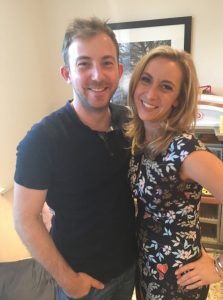

Risk-taking was instilled in Fatima and Sheba Zaidi from a young age. “Our parents were not entrepreneurial in the traditional sense but looking back they were risk takers – which is a huge part of being an entrepreneur. Despite coming from humble beginnings, our parents left Pakistan to look for better opportunities. They lived in multiple countries like Saudi Arabia, Bahrain and Canada, before settling down in Oman. They took a massive leap of faith by immigrating to Canada in the 1980s and starting a new life – a decision they made for the future of their daughters.”
But parenting isn’t the sole determining factor of success nor entrepreneurial traits. While emotional and financial support from parents can help, it’s not how most get their start. 76% of entrepreneurs rely on their personal savings as a top source of financing their businesses, rather than family or outside investments. Mark Ang says, “David and I have been on our own since our mid to late teens. We’ve been largely self-taught in a lot of what we do and it’s with that spirit that we face challenges head on.”
Whether children see direct influences by other entrepreneurial family members, have emotional encouragement and support, or pursue the path on their own, it does not seem to impact their likelihood to run a company or their success in it. According to the BDC, 47% of Canadian students dream of running their own business and family can help nurture and inspire that but it is not a requirement.
Siblings can fuel and support one another’s ideas
“When we were younger and had wild ideas, the first person we’d share with was each other.” Samantha Lloyd says, “We’d always hear each others’ crazy ideas, help each other, but would never shy away from giving a good reality check when needed.” Even if siblings have different ideas of what should be done or how, becoming confident in sharing ideas (and accepting criticism of those ideas) is a great skill to acquire at a young age.
You are also provided the opportunity to turn these ideas into businesses and side hustles when you share them with one another. David says, “Mark and I have always taken on small business ventures to make some extra money on the side.”
It seems that the personality traits of the siblings sets and their upbringing have little impact on their likelihood to pursue entrepreneurship. What research does suggest is that being risk-tolerant and creative are key traits.
Having a sibling teaches you to work well with others and to be empathetic to the needs of people around you. You also have the opportunity to bounce ideas off someone who understands what you want to accomplish and can access genuine feedback from that individual. Having a sibling to support you along your entrepreneurial journey can provide an honest foundation for building your dream – and it’s even sweeter if they’re by your side during the process.[/vc_column_text][/vc_column][/vc_row]


